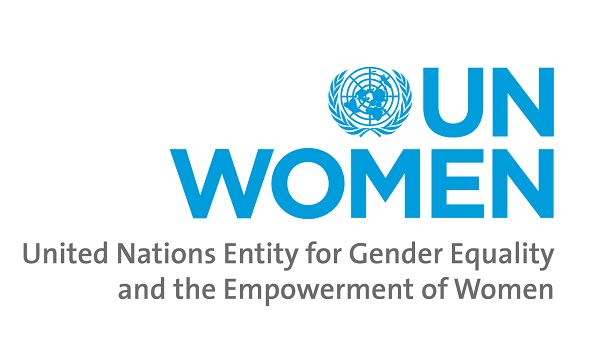UN Women (the United Nations Entity for Gender Equality and the Empowerment of Women), grounded in the vision of equality enshrined in the Charter of the United Nations, works for the elimination of discrimination against women and girls; the empowerment of women; and the achievement of equality between women and men as partners and beneficiaries of development, human rights, humanitarian action and peace and security.
In Turkey, in line with its Strategic Plan 2022-2025, UN Women works towards three overarching goals: 1) governance and participation in public life; 2) women’s economic empowerment;; 3) ending violence against women and girls; and 4) women, peace and security, humanitarian action, and disaster risk reduction.. The global Strategic Plan outlines several systemic outcomes, one of which is: “Gender statistics, sex-disaggregated data, and knowledge are produced, analyzed and used to inform policymaking, advocacy and accountability for delivering gender equality and women’s empowerment results.” It also underlines the need to increase the availability of disaggregated statistics and analysis on intersecting inequalities, and producing cutting-edge research and evidence on policies in support of gender equality and women’s empowerment, to fill critical knowledge gaps and deliver on the principle of ‘leaving no one behind.’
The project ‘Strengthening civil society capacities and multi-stakeholder partnerships to advance women’s rights and gender equality in Turkey’ to be implemented by UN Women Turkey Office between April 2021 and March 2024 with funding from the European Union aims to reduce gender inequalities by enhancing the ability of civil society organizations (CSOs) to be agents of transformative change towards gender equality and women’s rights. The specific objective of the project is “Women’s rights groups, women-led CSOs and other relevant rights based CSOs, including those representing youth and groups facing multiple and intersecting forms of discrimination/marginalization, more effectively influence the gender equality and women’s empowerment agenda at the national and local levels.”
Scope of Work/Duties and Responsibilities
This Request for Proposals is launched in the context of the project ‘Strengthening civil society capacities and multi-stakeholder partnerships to advance women’s rights and gender equality in Turkey’ to be implemented by UN Women Turkey Office between April 2021 and March 2024 with funding from the European Union.
The objective of the assignment is to conduct a qualitative and quantitative research on the needs, priorities and status of rural women and girls in Turkey to address the data gaps with regards to their access to services, rights, resources, and decision-making power considering the impact of the COVID19 pandemic. The research shall profile the rural women and girls in Turkey and map out their gendered needs and priorities. The research is expected to contribute to informed policy-making as well as evidence-based advocacy to advance the status and rights of rural women and girls in Turkey. It is also expected to help identify opportunities for collective action and advocacy for advancing the rights of rural women and improving the quality of the services and increase their accessibility by rural women and girls.
Bidders may be a private, public or government-owned legal entity or any association with legal capacity to enter into a binding Contract with UN Women.
The research shall address the below indicative topics, from a rights-based perspective:
- Rural women’s knowledge and awareness regarding rights and the available public services
- Rural women’s knowledge and access to response mechanisms, legal aid and justice (including knowledge of rights and mechanisms to access to services in case of rights violations in cases of violence against women, child, early and forced marriages, right to education, property, alimony and inheritance, etc)
- Rural women’s land and property ownership and use of property rights, including land, animal husbandry enterprises, agricultural machinery and tools
- Rural women’s enjoyment of civil rights
- Rural women and girls’ perception of gender stereotypes, violence against women and girls, including cultural harmful practices such as child, early and forced marriages
- Rural women and girls’ unpaid care (including child, disabled, sick or elderly care) and domestic work and its implications on access to decent work
- Rural women’s access to social protection, including social/basic services
- Rural women’s decision-making power at the household and community levels, such as in agricultural processing, use of natural resources and infrastructure works
- Rural women’s access to housing, sanitation and water
- Rural women’s access and use of financial resources such as bank loans and grants
- Rural women’s ownership and use of technological devices such as computers and mobile phones
- Rural women’s participation in civil society organizations, cooperatives and other collective structures
- Rural women’s knowledge of and access to tools and new technologies in agricultural production, as well as agricultural information, support services and registry mechanisms offered by the Ministry of Agriculture and Forestry and by other stakeholders.
The Contractor should design a separate survey sample covering the seasonal migrant agricultural workers. The research shall also address the situation, needs and priorities of rural women and girls with disabilities. Overall, the research should abide by the principle of ‘leaving no one behind’, and the bidders should elaborate in their proposal their approach to this principle in the research design, implementation and reporting.
Deadline on:20-Oct-2021 17:30 (GMT 3.00) Baghdad, Riyadh, Moscow, St. Petersburg

